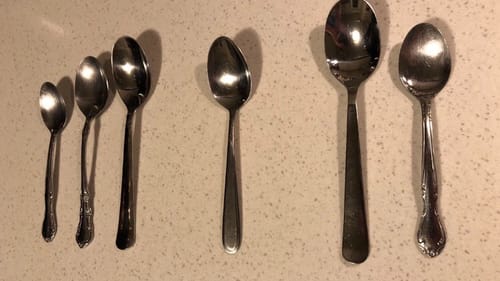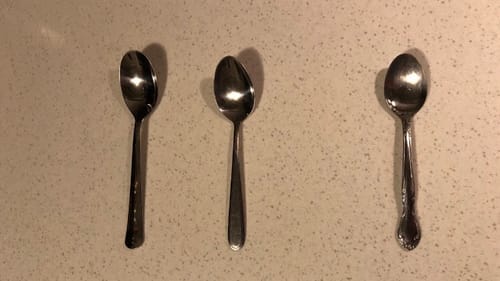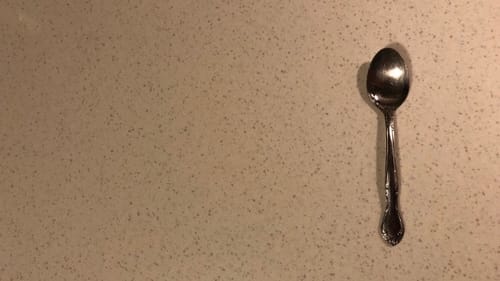Stay in the Loop
BSR publishes on a weekly schedule, with an email newsletter every Wednesday and Thursday morning. There’s no paywall, and subscribing is always free.
A normal workday
Why don’t people with chronic illnesses just get a regular job?

I still remember the moment I realized my career wouldn’t look like most people’s careers. I stood in the boardroom of an ad agency after a meeting and a lance of pain in my abdomen made me double over.
It was embarrassing, to be frank. My boss heard me gasp and saw me bent over the table. “Are you all right?” she asked.
I said I was, and it was true. I wasn’t in danger. No one could help. The only thing to do was walk carefully back to my cubicle, easing each foot down so it wouldn’t jar the rest of my body, and get through the rest of the workday upright, when every muscle, vessel, and nerve wanted to lie down.
Someone else’s office
As a teenager and throughout my early to mid-20s, I had a lot of jobs. I worked in dog kennels and grooming salons, was a cashier and a tour guide, did PR and copywriting. When I was younger, it was easier to ignore my body—if it took a while before I could move my joints and get out of the car after driving home, that’s life, right?
Wasn’t it normal to be terrified my back muscles would spasm while getting on the morning bus? Didn’t everyone have occasional spates of sickly disorientation and strobe lights flashing behind their eyes?

After countless doctor visits, I understood that a constellation of chronic illnesses held my body increasingly under siege. The year I worked at the ad agency was the first year I realized I wasn’t able to hide my pain anymore. It was the last year I ever worked in someone else’s office.
The perfect storm
I’ve been working from home as a full-time freelance writer and editor for about eight years now. It’s stressful. I’m the perfect storm, as far as American healthcare is concerned. I have multiple chronic illnesses; I’m self-employed; I make too much money to qualify for Medicaid or a large Affordable Care Act subsidy and too little money to afford much healthcare once my insurance premium is paid.
And I’m tired, because most of the time, if I try to talk to anyone about drowning in this uniquely American setup, people look at me like I’m being foolish or obstinate. If things are so hard, they ask, why not stop this freelance thing and just get an office job, with higher pay and benefits?
The other question
There’s another question people ask me. It’s related to that job question, but they don’t realize it: “What does ableism mean?”

Ableism is all around us. It’s buildings accessible only by people who can climb stairs, and public transit stations without elevators. It’s language that separates people on the autism spectrum, or people with depression, or people with cerebral palsy, from “normal” people. It’s idioms that use words like blind and deaf to denote people who are ignorant or unaware. And it’s the assumption that everyone can show up for work from 9am to 5pm, five days a week, at someone else’s office or job site.
One way to understand why a “normal job” is tough for someone with a chronic illness is to read Christine Miserandino’s Spoon Theory, which asks people who aren’t living with chronic illness to imagine holding a small handful of spoons. Everything you do costs you a spoon, from taking a shower, commuting to work, and making dinner to doing the dishes or meeting a friend. You have to make your paltry batch of spoons last the entire day—while other people get a nearly unlimited supply of spoons each morning. What would you spend your spoons on?
The cave
There are many reasons I keep my current career. It’s certainly the best fit for my skills and passions. There’s also a bigger reason I stick with it, despite all the uncertainties.
In short, working flexible full-time hours from home leaves me enough spoons to handle all the other parts of my life.

Some days I can trek all around the city. Some days, because of pain or fatigue, I can’t sit up for more than ten minutes at a time. I describe my pain like this: Imagine yelling into a huge cave and hearing the bouncing echoes. That’s how the pain ricochets inside my body, glancing back and forth off my organs, joints, and skin. It aches like a fever in the cold and grinds like sand in a hinge.
I have set out for events and then turned back to the house, frustrated and near tears, because I know I won’t be able to stay upright for the duration. Whenever I’m working on a big feature, I have everything ready to go one day before deadline, because if a migraine hits tomorrow, I could lose hours of my day in a darkened room, a pillow pressed to my pounding eye sockets, every move bringing tidal waves of nausea.
The job I need
I need a job where nobody cares what hours I work as long as I meet my deadlines. I need a job where it doesn’t matter if I sit at a desk. If I’m in too much pain to stay upright, I bring my laptop to bed or the couch and keep working. Many people with just one of my illnesses are unable to work. I am fortunate in my professional skills—they are ideal for remote work and flexible settings. And year after year, clients keep returning.
Now, on days when pain doubles me over, I can lie down quietly, no questions asked, and finish my work—safe from disturbance, questions, or judgments.
Sign up for our newsletter
All of the week's new articles, all in one place. Sign up for the free weekly BSR newsletters, and don't miss a conversation.

 Alaina Johns
Alaina Johns